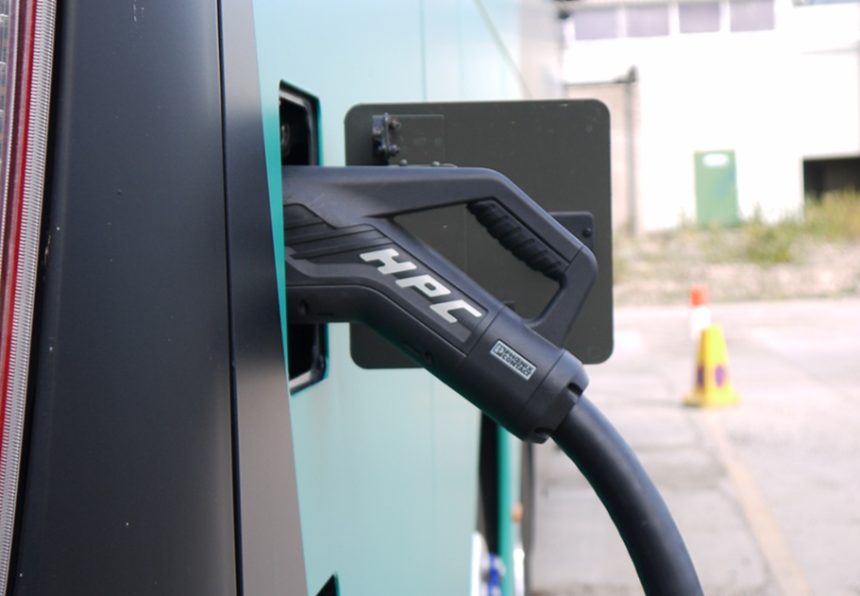Coach operators are among parties that are eligible to apply for grant funding of up to 75% towards the cost of chargers for battery-electric vehicles and associated civils work under the £30 million Depot Charging Scheme that launched on 16 July.
Successful bidders will be awarded a maximum of £1 million towards that equipment. Each participating organisation is limited to one application. Public and private sector fleets, local authorities and not-for-profit organisations in England, Northern Ireland, Scotland and Wales can take part in the scheme.
The closing date for applications is 28 November. The Department for Transport says that the Depot Charging Scheme aims to support the uptake of zero-emission coaches, HGVs and vans. Works under grant allocations must be completed by 31 March 2026.
To be eligible, an applicant must have been operating in the UK for at least one year at the time of the submission and must own, lease or have on order at least one battery-electric coach, HGV or van.
In guidance notes for the scheme, it is stated that charging points of any type or speed are within scope. Labour and materials required for installation and energisation – including civil engineering work, electrical components and electrical contractor works – are also covered but grid connections are not.
Funded infrastructure may be shared with other local operators subject to meeting specific pricing requirements.
Following a review of initial applications, eligible submissions will be invited to a second-stage review. Bidders will be asked to further detail permissions, plans, costs and financing at that point. If an applicant is not successful at that second stage, it will be able to appeal.
Coach operators in Scotland that have benefited from the second round of the Scottish Zero Emission Bus fund are eligible for the Depot Charging Scheme, a Q&A notes. They will be accepted to the latter provided there is no duplication of funding.
RHA has welcomed the Depot Charging Scheme. Managing Director Richard Smith describes it as “welcome support from the government” to help eligible operators to invest in depots and overcome the cost of net-zero.
Mr Smith adds that without an ability to charge battery-electric vehicles including coaches at depots, introduction of those will not come at the pace needed. However, he has called for more to be done to support the shift.
“We seek urgent clarity on how the full £2.6 billion announced by the government in last month’s Spending Review will be allocated to help businesses decarbonise,” he continues.
“We also urgent need to see how hydrogen-powered lorries and coaches can provide the solutions for hard-to-decarbonise operations that electric cannot currently cater for, such as long-distance and heavy haulage operations.” Multiple coach industry stakeholders have highlighted on-road charging facilities as key to adoption of battery-electric in that sector.


























